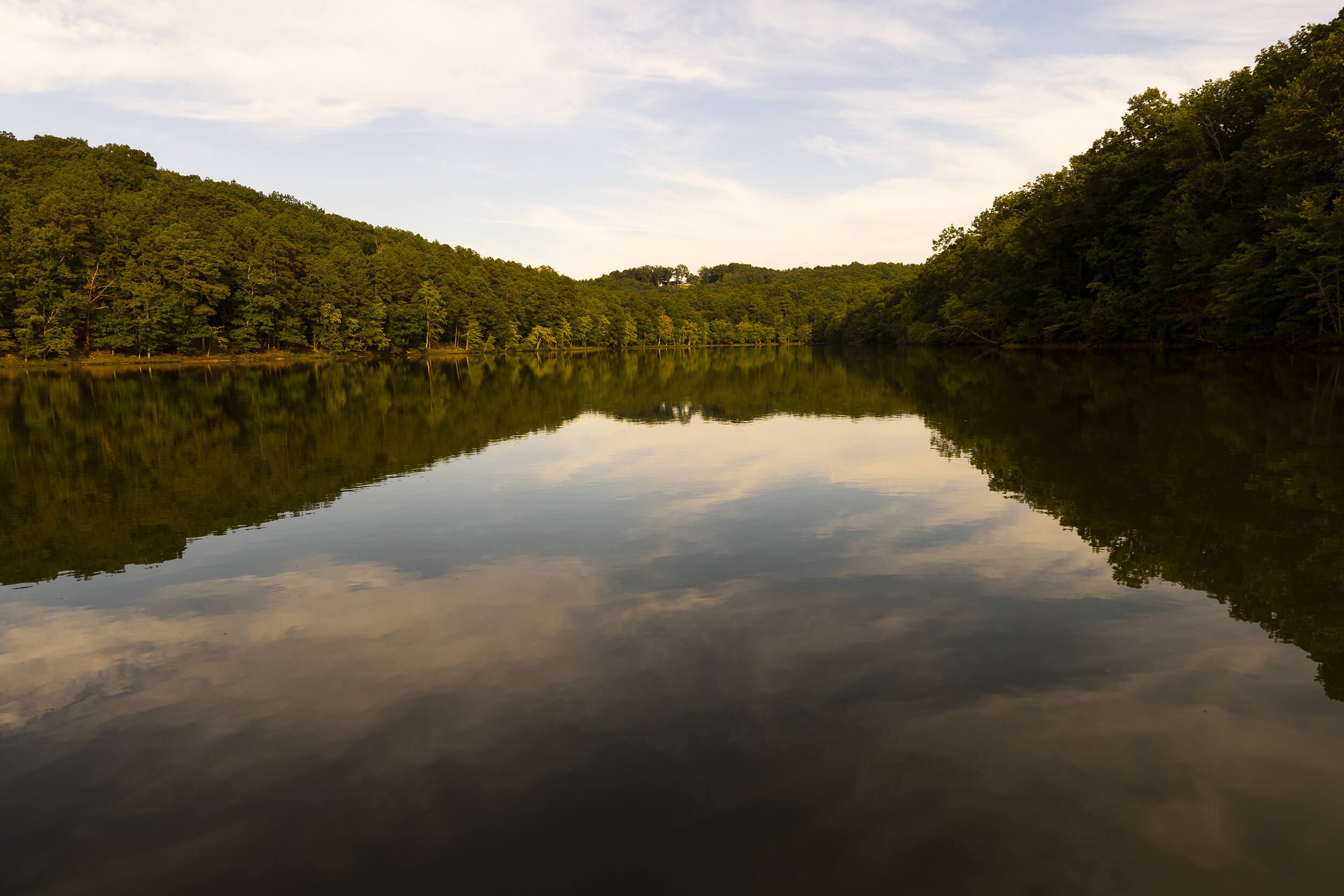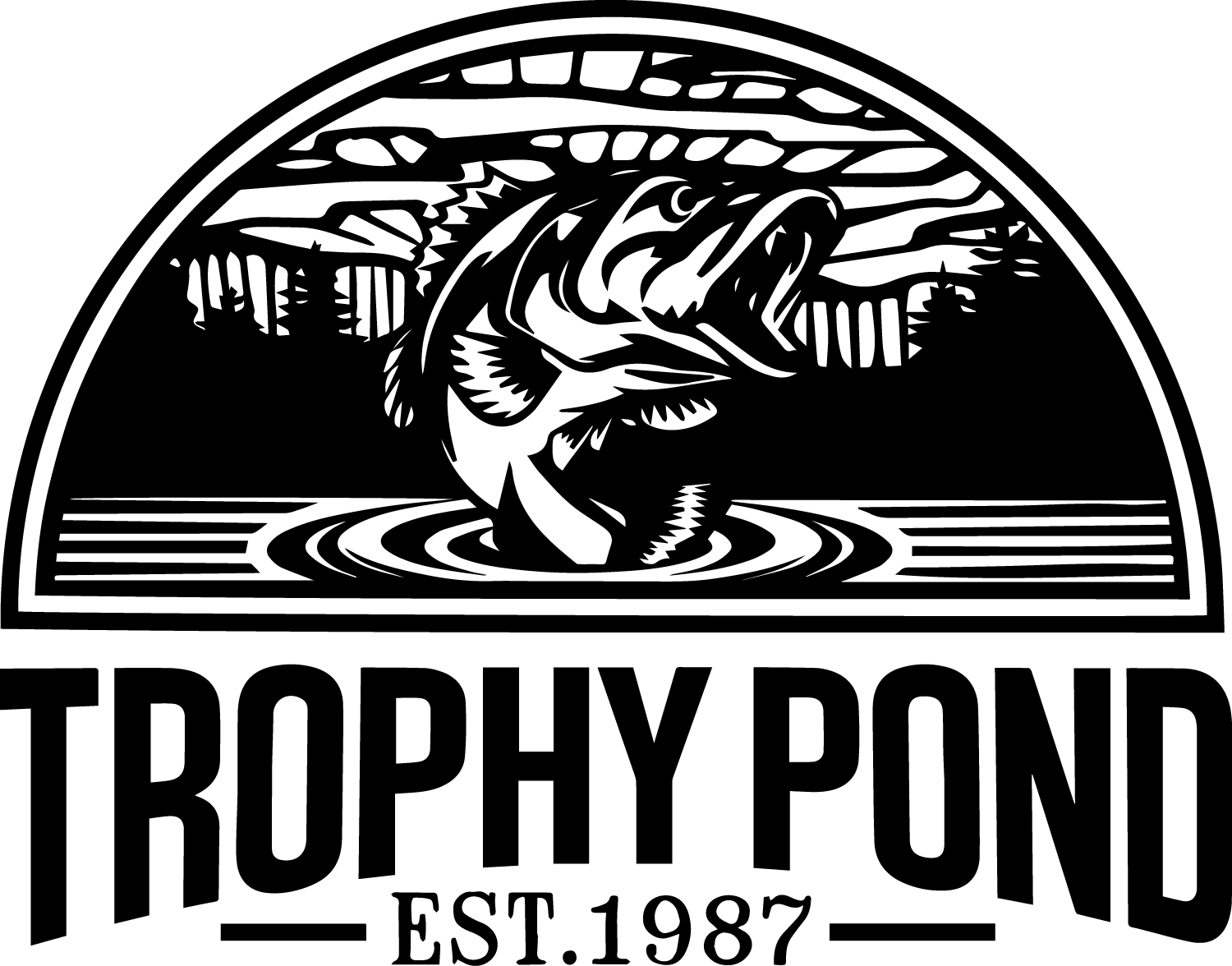
GEORGIA LAKE MANAGEMENT
Owning a pristine lake in Georgia offers an unparalleled experience. With the right expertise, such as what we provide at Georgia lake management, you can have a top-tier recreational lake at your doorstep. Georgia's waters have produced records, such as the legendary largemouth bass, showcasing the state's potential for world-class lake habitats.
Having worked extensively in Georgia, we have already begun redefining lake management companies in Georgia. For instance, a magnificent 22-acre lake we started managing in the north in 2016 bore witness to a thirteen-pound largemouth bass by 2018. Another remarkable achievement was the twenty-four-ounce hand-painted bluegill we helped cultivate in a one-acre pond near Ringgold.
The key to a healthy lake is its genetic makeup, as we have observed in our firsthand experiences. For example, a lake filled with Florida coppernose bluegill, without any intervention, produced fish that averaged almost nine inches in length due to their superior genetics. Simply put, a Great Dane will always be larger than a well-fed Dachsund, no matter the circumstances. Likewise, a Florida largemouth in the same conditions as a northern largemouth in a Georgia lake could easily grow to twelve pounds. In comparison, the latter might only reach six or seven pounds.
What can we offer you?
Owning a lake, whether a small one in your backyard or a sprawling one on an estate, demands diligent management to enjoy its benefits truly. With Georgia lake management and Construction, we are your all-encompassing solution for every need.
Lake Design & Construction
Comprehensive Lake Management
Lake Rehabilitation
EVERYTHING FROM ONE EXPERT TEAM
We are pleased to provide additional services such as:
Aeration Design
Consulting
Electrofishing
Guided Lake Tours
Liming and Fertilization
Real Estate Services
Weed and Invasive Species Control
Get a Quote.
info@trophypond.com
(931) 374-0536
The Difference
Georgia Lake management services are about more than just maintaining water and elevating its potential. Our commitment to genetics is evidence of that. For instance, we propagate two exclusive bluegill varieties originally from Florida. Compared to the northern bluegill, these subspecies have showcased significantly accelerated growth rates in Georgia's water bodies. Notably, the fish we raise are nurtured in climates similar to Georgia, guaranteeing resilience even during the colder winters. Through selective breeding, we ensure the fish we introduce to your lake are of the finest quality, primed for rapid growth and health.
However, genetics is just the foundation. Recall that 22-acre lake? Before any other fish, we introduced forty muskies to it. The idea? To construct a balanced, thriving ecosystem from the ground up.
Teaming up with genuine experts like us is crucial when managing and constructing Georgia lakes. Our top biologist has more than 30 years of experience, providing us with the knowledge to avoid common mistakes that inexperienced individuals may encounter.
Why Partner With Georgia Lake Management?
It takes expertise to manage Georgia's lakes properly. Each body of water is a reflection of nature's complex balance. Understanding these nuances ensures your lake is home to the right aquatic life. With our unmatched knowledge, we can help you select the best species suited for Georgia's climate and geography. Contact us today, and let's work together to make your vision a reality.
People Also Ask Questions
-
In Georgia lakes, effective aquatic weed control often requires a multi-pronged approach. The initial step is accurately identifying the problematic weed species, as treatment can vary depending on the weed. Mechanical removal, such as harvesting or hand-pulling, is effective for immediate relief, especially for larger, accessible infestations. For pervasive or recurring weed issues, herbicides approved by the Georgia Department of Natural Resources can be applied. Integrating biological control methods, like introducing grass carp, which feed on certain aquatic plants, can offer sustainable control over time.
-
Certainly! Eco-friendly lake management in Georgia focuses on creating a balanced aquatic environment, reducing the need for chemical interventions. Installing aeration systems can improve water circulation and oxygen levels, mitigating algal blooms. Using beneficial bacteria and enzymes can break down organic matter, preventing muck buildup and nutrient overload. Buffer zones, consisting of native plants around the lake's perimeter, can act as filters, trapping runoff pollutants and preventing shoreline erosion. Regular monitoring and early detection of issues can also reduce the need for aggressive, potentially harmful treatments.
-
Georgia's lakes face challenges from several invasive species. Some of the most problematic include the hydrilla, Eurasian watermilfoil, and zebra mussels. These invaders can outcompete native species, disrupting the local ecosystem. Management often requires a combination of methods. For instance, herbicides might be used against hydrilla, while introducing sterile grass carp, which feed on the plant, offers a biological control method. Mechanical removal can also be effective, especially when combined with other techniques. Raising awareness and educating boaters and anglers about cleaning their equipment is crucial to preventing these invasive species' spread between water bodies.
-
Lake management in Georgia presents several challenges. The state's diverse climates and ecosystems mean no one-size-fits-all solution exists. Rapid urban development can increase runoff, introducing pollutants and excess nutrients into lakes, leading to problems like algal blooms. Fluctuations in water levels, often due to natural conditions and human activity, can impact lake health and recreational use. Additionally, introducing and spreading invasive species pose a constant challenge, requiring ongoing vigilance, monitoring, and intervention. Ensuring sustainable, effective lake management necessitates collaborative efforts from local communities, experts, and authorities.

